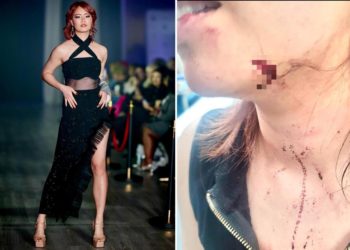Facing 153 sexual abuse cases, the Fresno Diocese seeks bankruptcy. Critics call it delay tactic
Bogged down by 153 claims of clergy sex abuse, the Roman Catholic Diocese of Fresno announced Tuesday it voluntarily filed...
adidas Just Dropped the Ghost Sprint “Magic Beige”
Name: adidas Ghost Sprint “Magic Beige” Colorway: Magic Beige/Wonder White/Gum SKU: JS1067 MSRP: $140 USD Release Date: July 1 Where...
Las redadas de inmigración apagan los fuegos de varias celebraciones del 4 de julio, pero quedan muchas
Para muchos integrantes de nuestra comunidad, estos no son tiempos de celebración, ni mucho menos. Las recientes e imprevistas redadas...
‘Felt pins and needles’: Russellville woman speaks out after being struck by lightning
RUSSELLVILLE, Ala. (WHNT) — A 19-year-old woman is speaking out just two days after being struck by lightning while on...
Social Security Backs Off Listing Living Migrants as Dead
The Trump administration has backed away from a maneuver in which it sought to classify thousands of living immigrants as...
How to Watch Borussia Dortmund vs Monterrey: Live Stream FIFA Club World Cup Round of 16, TV Channel
Borussia Dortmund will face Monterrey in this 2025 FIFA Club World Cup Round of 16 matchup on Tuesday at Mercedes-Benz...
Ohio State Buckeyes’ Jeremiah Smith Doesn’t Hold Back About Julian Sayin
The Ohio State Buckeyes are entering a 2025 season that comes with high expectations and major questions marks. After Ryan...
Slain Idaho firefighters mourned, remembered; shooting suspect’s ex-roommate says he noticed change in demeanor
Amid his shock and grief, Gabe Eckert — president of the Coeur d’Alene Firefighters’ union — recalled his final memory...
Alabama Violated Constitutional Rights of Death Row Inmate, Appeals Court Rules
A man who has spent 25 years on Alabama’s death row is eligible to be retried for the 1988 murder...
Europe’s politicians suffer through heat wave — with or without air conditioning
If you’ve had to attend an outdoor event — or, worse still, an indoor event with no air conditioning —...

















